Abstract
Samples of soil collected from the Kennedy Space Center near the spacecraft assembly facilities were found to contain microorganisms very resistant to conventional sterilzation techniques. The inactivation kinetics of the naturally occurring spores in soil were investigated by using dry heat and ionizing radiation, first separately and then simultaneously. Dry-heat inactivation kinetics of spores was determined at 105 and 125 C; radiation inactivation kinetics was determined for dose rates of 660 and 76 krads/h at 25 C. Simultaneous combinations of heat and radiation were then investigated at 105, 110, 115, 120, and 125 C, with a dose rate of 76 krads/h. Combined treatment was found to be highly synergistic, requiring greatly reduced radiation doses to accomplish sterilization of the population.
Full text
PDF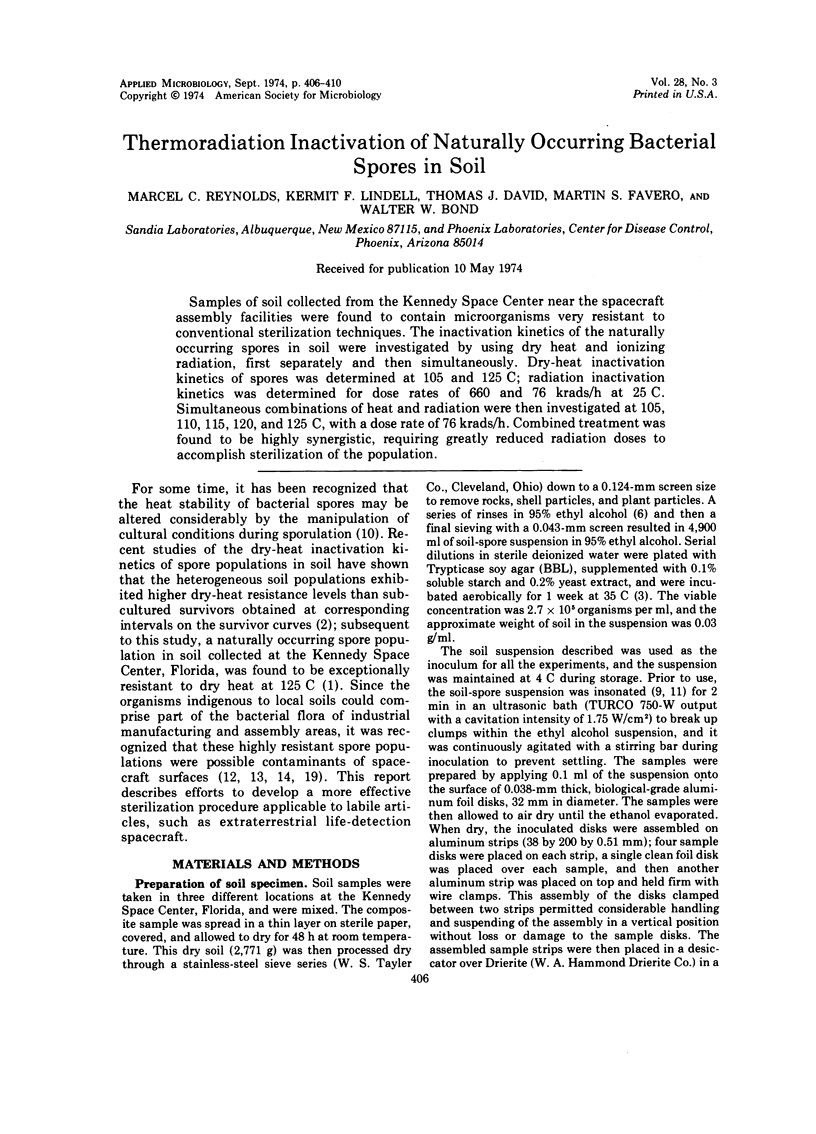
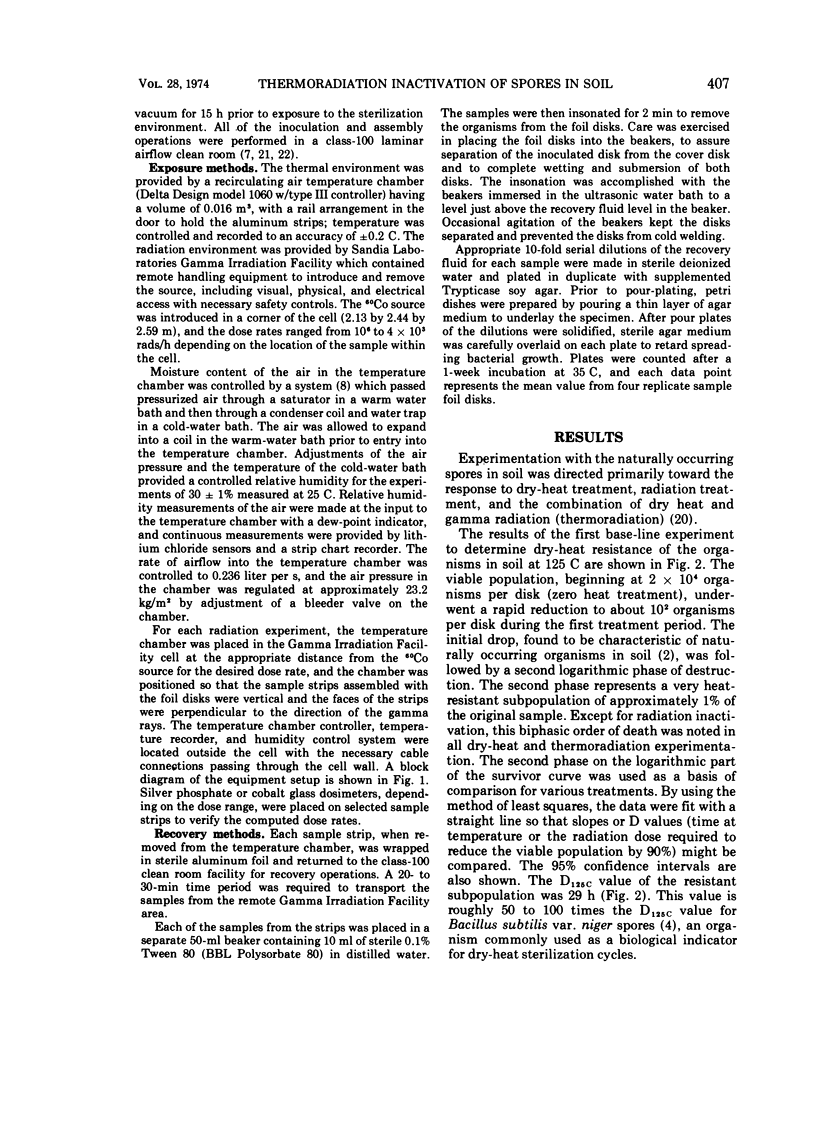
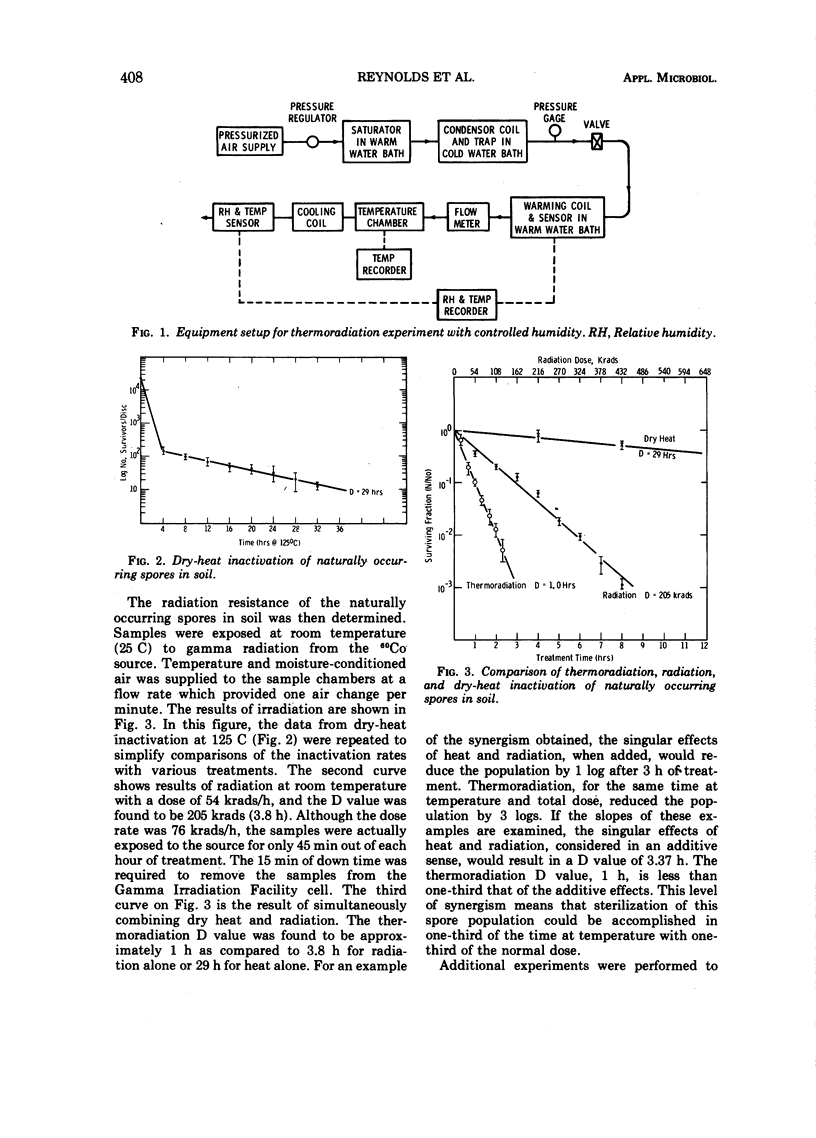
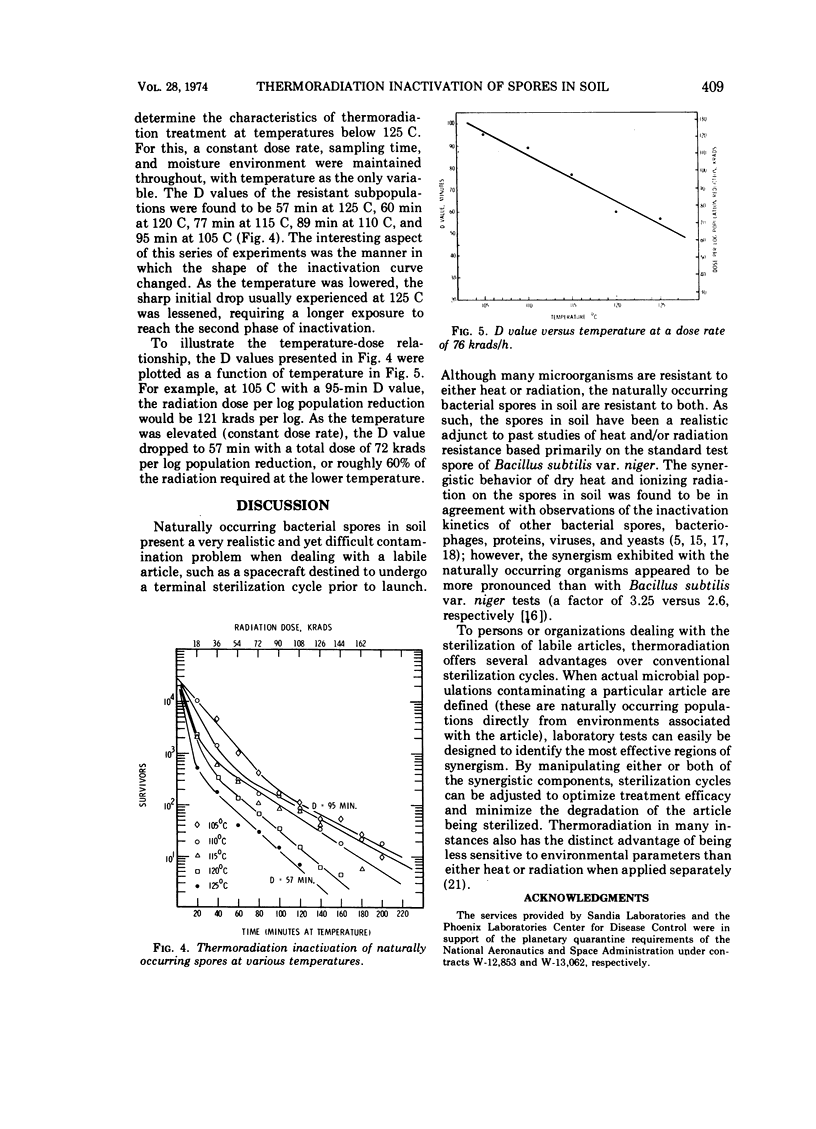
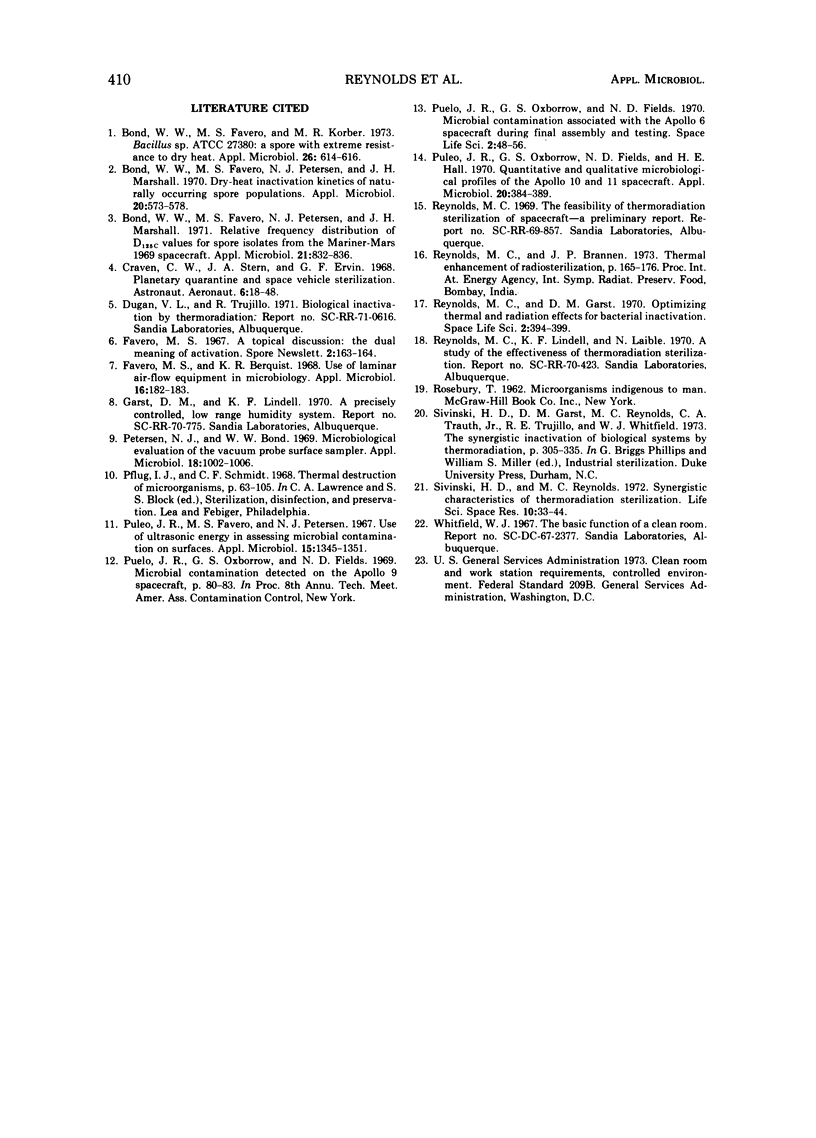
Selected References
These references are in PubMed. This may not be the complete list of references from this article.
- Bond W. W., Favero M. S., Korber M. R. Bacillus sp. ATCC 27380: a spore with extreme resistance to dry heat. Appl Microbiol. 1973 Oct;26(4):614–616. doi: 10.1128/am.26.4.614-616.1973. [DOI] [PMC free article] [PubMed] [Google Scholar]
- Bond W. W., Favero M. S., Petersen N. J., Marshall J. H. Dry-heat inactivation kinetics of naturally occurring spore populations. Appl Microbiol. 1970 Oct;20(4):573–578. doi: 10.1128/am.20.4.573-578.1970. [DOI] [PMC free article] [PubMed] [Google Scholar]
- Bond W. W., Favero M. S., Petersen N. J., Marshall J. H. Relative frequency distribution of d(125 C) values for spore isolates from the mariner-Mars 1969 spacecraft. Appl Microbiol. 1971 May;21(5):832–836. doi: 10.1128/am.21.5.832-836.1971. [DOI] [PMC free article] [PubMed] [Google Scholar]
- Favero M. S., Berquist K. R. Use of laminar air-flow equipment in microbiology. Appl Microbiol. 1968 Jan;16(1):182–183. doi: 10.1128/am.16.1.182-183.1968. [DOI] [PMC free article] [PubMed] [Google Scholar]
- Petersen N. J., Bond W. W. Microbiological evaluation of the vacuum probe surface sampler. Appl Microbiol. 1969 Dec;18(6):1002–1006. doi: 10.1128/am.18.6.1002-1006.1969. [DOI] [PMC free article] [PubMed] [Google Scholar]
- Puleo J. R., Favero M. S., Petersen N. J. Use of ultrasonic energy in assessing microbial contamination on surfaces. Appl Microbiol. 1967 Nov;15(6):1345–1351. doi: 10.1128/am.15.6.1345-1351.1967. [DOI] [PMC free article] [PubMed] [Google Scholar]
- Puleo J. R., Fields N. D., Moore B., Graves R. C. Microbial contamination associated with the Apollo 6 spacecraft during final assembly and testing. Space Life Sci. 1970 May;2(1):48–56. doi: 10.1007/BF00928955. [DOI] [PubMed] [Google Scholar]
- Puleo J. R., Oxborrow G. S., Fields N. D., Hall H. E. Quantitative and qualitative microbiological profiles of the Apollo 10 and 11 spacecraft. Appl Microbiol. 1970 Sep;20(3):384–389. doi: 10.1128/am.20.3.384-389.1970. [DOI] [PMC free article] [PubMed] [Google Scholar]
- Reynolds M. C., Garst D. M. Optimizing thermal and radiation effects for bacterial inactivation. Space Life Sci. 1970 Dec;2(3):394–399. doi: 10.1007/BF00929295. [DOI] [PubMed] [Google Scholar]


